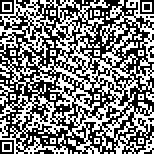| 摘要: |
| [摘要] 目的 探讨糖尿病大鼠的高血糖状态持续时间对大鼠体内细胞免疫功能的影响。方法 采用链脲佐菌素注射成功制备糖尿病大鼠模型共20只,随机分为四组,每组5只。A组:成模后血糖升高4 d皮下注射胰岛素,控制血糖在8~12 mmol/L之间;B组:成模后血糖升高持续8 d皮下注射胰岛素控制血糖;C组:成模后血糖升高持续2周皮下注射胰岛素控制血糖;D组:未控制血糖。以正常血糖大鼠5只为正常对照组。对糖尿病大鼠分别于4 d、8 d、15 d及4周取外周血用流式细胞仪检测CD4+、CD8+、CD4+/CD8+及CD4+CD25+/CD4+ T淋巴细胞比率,以评价不同高血糖持续状态对正常机体细胞免疫功能的影响。结果 (1)与正常对照组相比,A组及B组大鼠4、8、15 d及4周的各项细胞免疫指标无明显变化。(2)C组大鼠在15 d外周血CD4+比例下降,CD8+比例升高,CD4+/CD8+比值明显下降(P<0.05)。经控制血糖后,C组大鼠在4周时外周血CD4+比例较15 d时明显升高(P<0.05),但仍明显低于正常对照组(P<0.05)。(3)D组大鼠在15 d及4周外周血CD4+比例下降,CD8+比例升高,CD4+/CD8+比值明显下降(P<0.05)。(4)各组大鼠各阶段的CD4+CD25+/CD4+ T淋巴细胞比值与正常对照组大鼠差异无统计学意义(P>0.05)。结论 高血糖持续时间超过2周以上即可对大鼠体内细胞免疫功能产生部分影响。在高血糖持续时间超过2周后糖尿病大鼠体内细胞免疫功能明显紊乱,表明长期高血糖可以对糖尿病个体免疫功能产生较大影响。 |
| 关键词: 糖尿病 高血糖 细胞免疫 |
| DOI:10.3969/j.issn.1674-3806.2014.03.08 |
| 分类号:R 587.1 |
| 基金项目: |
|
| Effects of duration of hyperglycemia on cellular immunity function in diabetic rats |
|
YU Jin-ming,CAI De-hong,ZHANG Hua, et al.
|
|
Department of Endocrinology, the People′s Hospital of Guangxi Zhuang Autonomous Region, Nanning 530021,China
|
| Abstract: |
| [Abstract] Objective To investigate the influence of the duration of hyperglycemia on cellular immune funtion in diabetic rat.Methods Animal model of diabetes mellitus was establish via continuously intraperitoneal injection of streptozotocin.Twenty rats with successful modeling were randomly divided into 4 groups,each group include five rats.Group A:on the 4th day of successful modeling,insulin was injected to control glucose between 8~12 mmol/L. Group B: After 8 d of successful modeling,insulin was injected to control glucose. Group C: After 2 weeks of successful modeling,insulin was injected to control glucose. Group D: After successful modeling, blood glucose did not controlled in entire experiment course. 5 normal rats were used as control group at the same time. Peripheral blood cells were collected at 5 d, 8 d, 15 d and 4 weeks. The ratio of the CD4+, CD8+, CD4+/CD8+,CD4+CD25+/CD4+ T cells were detected by FCM.Results (1)It showed no significant change of the ratio of CD4+, CD8+, CD4+/CD8+, CD4+CD25+/CD4+ T cells on 4 d, 8 d, 15 d and 4 weeks in group A and group B when compared with the control group. (2)In group C,there was a significant decrease of CD4+ T lymphocytes on 15 d,and the proportion of CD8+ T cell increased instead. The ratio of CD4+/CD8+ had a significant decrease(P<0.05). The ratio of the CD4+ T cells had significant increased between 15 d and 4 weeks after controlling glucose, but it was still obviously lower than that of control group(P<0.05). (3)In group D,there was a significant decrease of CD4+ T lymphocytes on 15 d,and the proportion of CD8+ T cell increased. The ratio of CD4+/CD8+ also had a significant decrease(P<0.05). (4)The ratio of CD4+ CD25+ /CD4+ T cells hadn′t a significant difference between experimental groups and control group(P>0.05).Conclusion Diabetic rats have cellular immune dysfunction mediated by hyperglycemia with duration time more than two weeks. It means that chronic hyperglycemia have great effect on cellular immune function. |
| Key words: Diabetes Hyperglycemia Cellular immunity |

